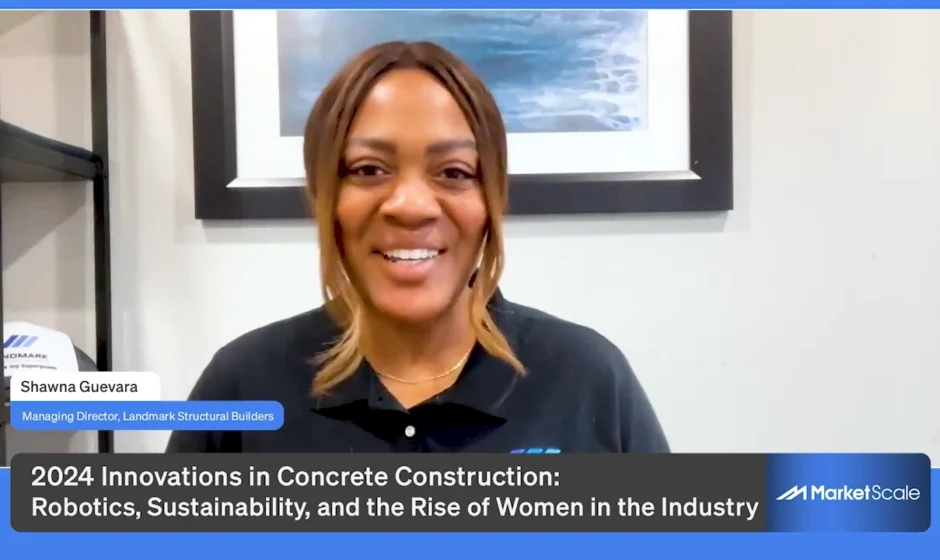The concrete construction industry is currently undergoing a significant transformation, driven by groundbreaking innovations and a strong commitment to sustainability. By the year 2024, new technologies are set to revolutionize traditional practices, boosting efficiency while reducing worker injuries. This shift goes beyond just productivity; it represents a fundamental change in the industry’s approach to environmental responsibility and worker safety. The adoption of recycled materials and low-emission concrete solutions highlights a dedication to eco-friendly construction. Additionally, the focus on inclusive and efficient construction technologies is reshaping the sector, making it safer and more accessible.
The industry is actively addressing challenges such as logistical delays and budget constraints with resilience and proactive strategies, demonstrating its adaptability. Experts like Shawna Guevara, the Managing Director at Landmark Structural Builders, play a crucial role in guiding the industry towards a more innovative and inclusive future in this evolving landscape.
According to Shawna Guevara, in 2024, groundbreaking innovations in concrete construction will transform the industry. Construction robotics, such as TIBOT, are revolutionizing rebar tying, increasing productivity by up to 40% and significantly reducing worker injuries. The Filt printer is automating layout markings on concrete slabs at speeds up to 10 times faster than traditional methods.
Furthermore, advancements in concrete repair technologies are making surface maintenance and restoration more cost-effective. These advancements, including self-healing concrete and cutting-edge resurfacing processes, contribute to the longevity of structures. The industry is also embracing sustainable concrete methods by using recycled materials and low-emission concrete solutions. These advancements demonstrate a commitment to both efficiency and environmental responsibility in the ever-changing context of concrete building. Modern concrete technologies promote safety and accessibility, with innovations in sidewalk and driveway construction resulting in smoother surfaces, enhanced traction, and greater accessibility for all. Shawna Guevara, as a CAP-certified professional, is dedicated to these inclusive and efficient construction technologies.
In today’s concrete building marketplace, logistical delays present significant obstacles for industry leaders. Weather disruptions, uncertain delivery times, and disturbances are common challenges for construction projects. Adverse weather conditions, such as ice and snow, not only cause missed deadlines but also create on-site obstacles, such as reduced visibility due to dust. Another major difficulty is the constraint of construction budgets, which may require sacrifices on critical project aspects and impact the realization of clients’ visions.
Additionally, construction shortages, whether in terms of labor or materials, contribute to project turbulence. Overcoming these difficulties requires proactive measures to reduce weather-related risks, optimize construction budgets, and actively seek solutions for labor and material shortages. The construction industry’s resilience is defined by its ability to adapt to these changing circumstances.
Finding and retaining skilled professionals in the concrete sector can be challenging, so creative approaches are necessary. Successful techniques include relying on recommendations from current employees, attending job fairs to connect with potential candidates, and leveraging social media to promote openings and engage with qualified individuals. These strategies not only expand the recruitment pool but also help foster a vibrant and skilled workforce in the concrete industry.
For individuals entering the concrete forming business, staying informed is crucial. The American Concrete Institute (ACI) is highly recommended, as they provide vital insights and the latest innovations in the concrete industry. ACI also offers a free downloadable publication, which serves as an ideal platform for staying current and well-informed in the field. Concrete Construction is another valuable resource, providing free training and resources for contractors and specifiers on construction processes, materials, and best practices. These resources keep professionals up to date with the latest news and advancements in the ever-changing world of concrete building.
Over the past five years, the construction sector has made progress towards inclusion, recognizing the valuable talents that women bring. Women bring problem-solving skills, efficient time management, a different perspective on projects, and effective communication. Organizations like the National Association of Women in Construction (NAWIC) and the formation of professional women in building branches by builders’ associations demonstrate encouraging progress. While there is still room for improvement, the movement towards a more inclusive and diversified landscape in the concrete and construction industry is both exciting and hopeful.




